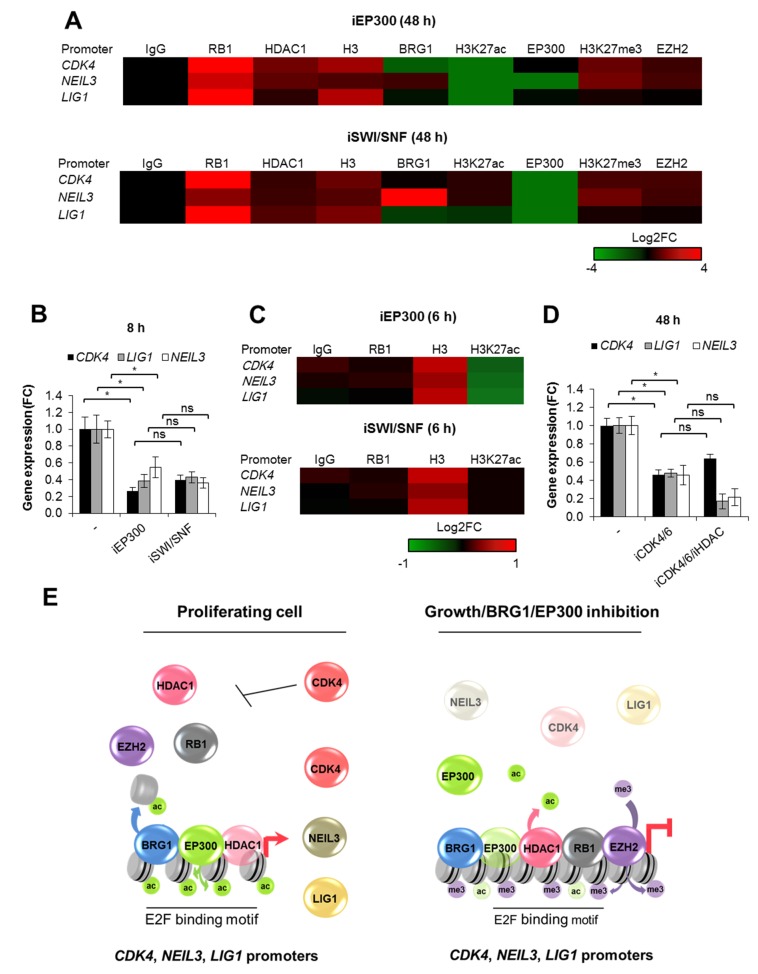Figure 4.
BRG1-dependent cell cycle progression defines chromatin composition at the promoters of DNA repair genes. (A) Long-term (48 h) deficiency of BRG1 and EP300 activity induces substantial changes in the chromatin structure, and recruitment of cell cycle-dependent repressors to the promoters of genes involved in cell proliferation and response to DNA damage (ChIP/real-time PCR). (B) Short-term (8 h) inhibition of BRG1, EP300, but not CDK4/6, results in transcription restraint (nascent RNA quantification by Click-iT chemistry), and (C) immediate chromatin closure without RB1 association with the studied gene promoters (ChIP/real-time PCR) of MCF7 cells. (D) Gene transcription (mRNA level; real-time PCR) was measured 48 h after MCF7 cell treatment with iCDK4/6. iHDAC was added 24 h prior to RNA isolation to restore chromatin acetylation. (E) Graphic representation of immediate and late chromatin response to cell growth arrest, BRG1 and EP300 inhibition. In the presented model, BRG1 and EP300 stimulate cell proliferation and, therefore, activate transcription of genes, which are transcriptionally driven by cell cycle progression. Data presented in figures (A–D) are presented as mean of four independent replicates (n = 4). Detailed statistical data can be found in Table S3.

